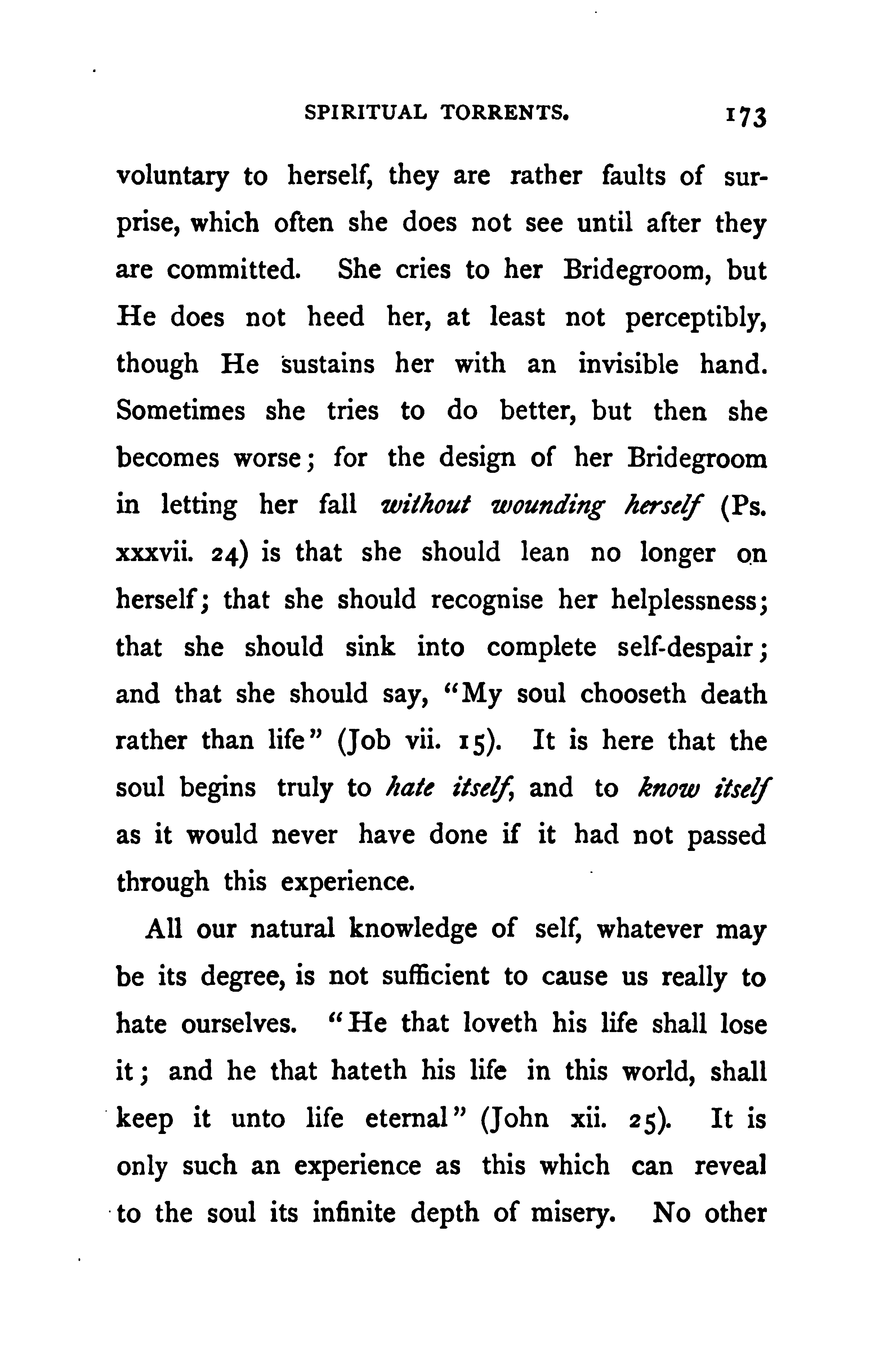voluntary
to
herself,
they
are
rather
faults
of
sur-prise,
which
often
she
does
not
see
until
after
they
are
committed.
She
cries
to
her
Bridegroom,
but
He
does
not
heed
her,
at
least
not
perceptibly,
though
He
sustains
her
with
an
invisible
hand.
Sometimes
she
tries
to
do
better,
but
then
she
becomes
worse;
for
the
design
of
her
Bridegroom
in
letting
her
fall
without
wounding
herself
(Ps.
xxxvii.
24)
is
that
she
should
lean
no
longer
on
herself;
that
she
should
recognise
her
helplessness;
that
she
should
sink
into
complete
self-despair;
and
that
she
should
say,
"My
soul
chooseth
death
rather
than
life"
(Job
vii.
15).
It
is
here
that
the
soul
begins
truly
to
hate
itself
and
to
know
itself
as
it
would
never
have
done
if
it
had
not
passed
through
this
experience.
All
our
natural
knowledge
of
self,
whatever
may
be
its
degree,
is
not
sufficient
to
cause
us
really
to
hate
ourselves.
"He
that
loveth
his
life
shall
lose
it;
and
he
that
hateth
his
life
in
this
world,
shall
keep
it
unto
life
eternal"
(John
xii.
25).
It
is
only
such
an
experience
as
this
which
can
reveal
to
the
soul
its
infinite
depth
of
misery.
No
other

